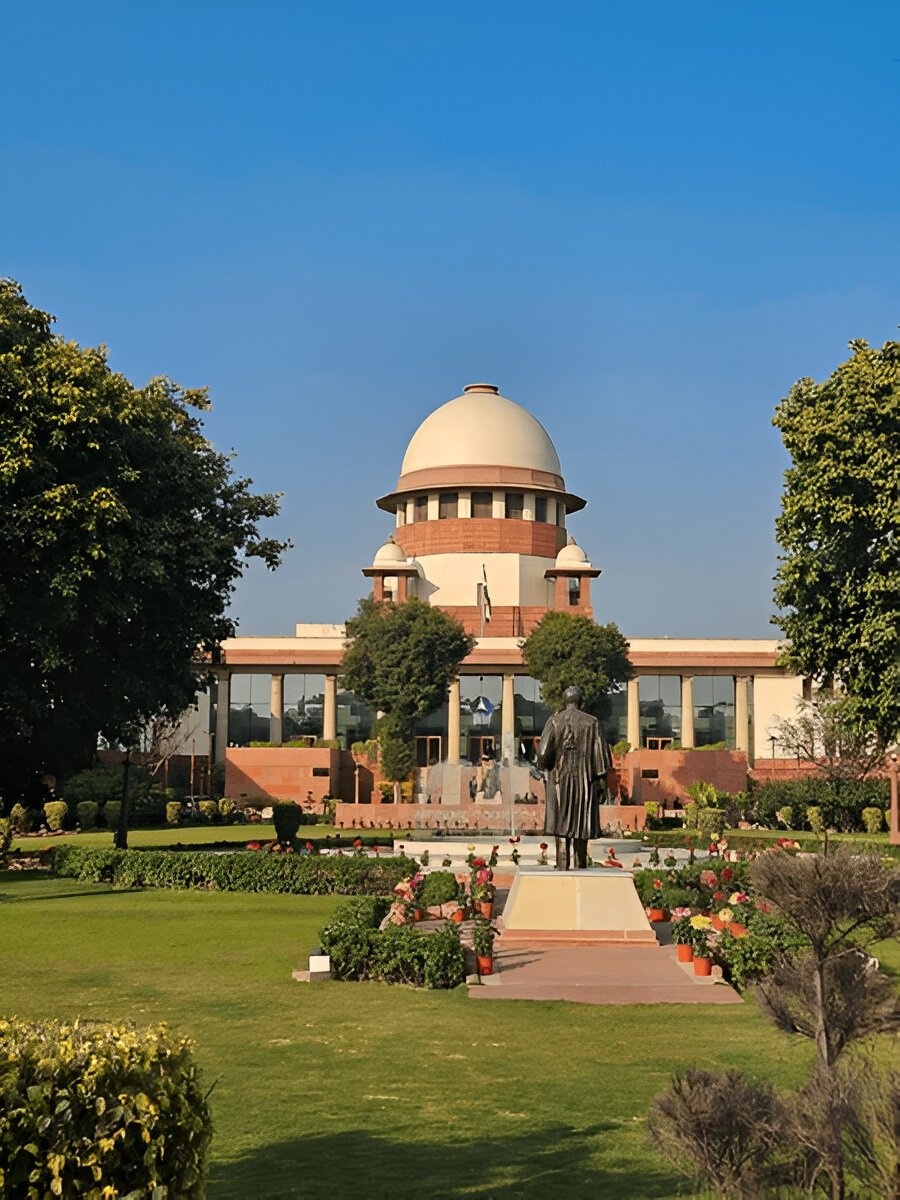Bench: Justice Dipankar Datta and Justice Manmohan
Introduction
The Supreme Court in this case addressed a significant legal question on the applicability of Section 10 of the Transfer of Property Act, 1882 (TPA) in the context of government land allotments. The Court clarified that restrictive conditions imposed in such allotments especially when done for public interest are valid and not hit by Section 10, as such transfers are not typical inter vivos commercial transactions but are governed by administrative policies and statutory rules.
- Section 10, Transfer of Property Act, 1882 – Prohibits absolute restraint on transfer in property dispositions.
- Doctrine of Public Trust & Public Interest – Recognized in constitutional and administrative jurisprudence.
Facts of the Case
In 2001, the State of Telangana (then undivided Andhra Pradesh) allotted 3.01 acres of land in Medak district to the Respondent Trust for charitable purposes, under a Government Order.
The allotment was conditional, requiring the land to:
- Be used exclusively for charitable purposes.
- Be developed within two years (i.e., construction to be completed within that period).
However, the Respondent Trust violated these conditions by:
- Subdividing the land into plots.
- Selling the plots to private individuals.
- Executing a fraudulent General Power of Attorney (GPA) in 2011 to conceal the violations.
In 2012, the State issued a resumption order, reclaiming the land for breach of allotment conditions.
The High Court struck down this resumption in 2022, holding that the restriction violated Section 10 of the Transfer of Property Act, 1882, which renders void any condition that absolutely restrains the transferee from transferring the property.
You can also read the Judgement of Shah Bano Case.
For more information, visit [Aashayein Enquiry Section]
Issues Before the Court
- Whether Section 10 of the Transfer of Property Act applies to government land allotments made for public purposes?
- Whether the government can legally impose and enforce conditions, including resumption clauses, in such allotments?
- Was the High Court justified in setting aside the resumption order on the ground of Section 10 TPA?
4. Contentions of the Petitioners
The State contended that:
- The land allotment was not a sale, but an administrative allotment for public purpose under specific government policy.
- Such allotments are governed by statutory rules and Board of Revenue Standing Orders, not by the Transfer of Property Act.
- Section 10 TPA does not apply, as the transaction is not a private inter vivos transfer.
- The resumption of land was valid due to breach of conditions, especially in light of the fraud by the trust.
Contentions of the Respondents
The Trust argued that:
- The land was transferred, and therefore the provisions of the Transfer of Property Act were applicable.
- The resumption clause amounted to an absolute restraint on alienation, prohibited under Section 10 TPA.
- Once land is transferred, the State cannot unilaterally resume the property.
- The High Court rightly struck down the State’s action.
Court’s Analysis
The Court emphasized that:
- Government land allotments for public purposes are not commercial transfers, and hence do not attract Section 10 of the TPA.
- Such transactions are not between two private parties (inter vivos) but involve the State acting in public interest.
- The Rules of 1975 and Board of Revenue Standing Orders provide the statutory framework for allotment, conditions, and resumption — independent of the TPA.
- There is no eclipse of these rules by TPA, and the State’s administrative discretion in enforcing public welfare conditions must be upheld.
- The Trust committed fraud, concealed terms, and diverted land for private gain — hence violated public trust and forfeited any claim to protection under TPA.
Conclusion
The Supreme Court set aside the High Court’s order and upheld the State’s resumption of land. It held that Section 10 of the TPA does not invalidate conditional government allotments, and public interest must prevail over private claims. Government can legally impose and enforce restrictive conditions, including resumption clauses, in land allotted for public or charitable purposes.

